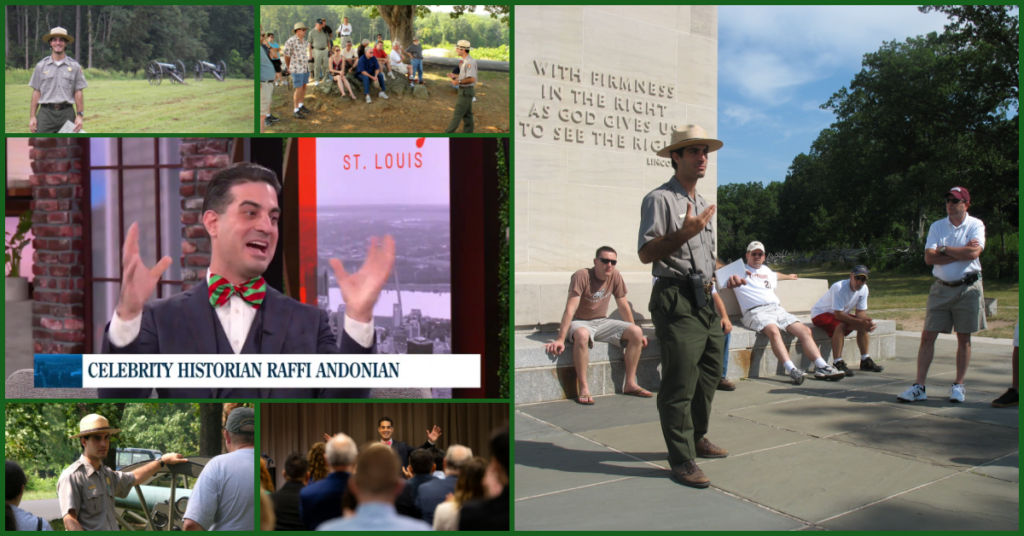Experience American History with Raffi’s Regulars
June 29, 2024

Calling all American history buffs! This fall, you can immerse yourself in our country’s past while supporting SDHC by joining Celebrity Historian Raffi Andonian for the trip of a lifetime.
Andonian’s 2024 “Beyond the Postcard” tour, built around the theme of “Defining the American Dream,” will take participants to iconic sites along the East Coast September 15-21. This bucket-list trip will feature nationally known scholars leading tours with non-public access to these legendary locations:
- Gettysburg Battlefield, turning point of the Civil War and site of the Gettysburg Address
- Fort McHenry, birthplace of “The Star-Spangled Banner”
- Antietam National Battlefield, site of America’s single bloodiest day and inspiration for the Emancipation Proclamation
- Harpers Ferry, where the end of American slavery began
- Annapolis, home to proponents of religious freedom and signers of the Declaration of Independence
Each of these destinations, described in detail at RaffisRegulars.com, provides a wealth of insight into significant historic events and household names like Abraham Lincoln, George Washington, Robert E. Lee, Frederick Douglass, Francis Scott Key, W.E.B. Du Bois, and John Brown.
Raffi Andonian is TV’s Celebrity Historian, with almost 200 guest appearances on ABC-NBC-CBS-FOX stations across the country, including an Emmy-winning story. He is a professor at Harris Stowe State University, an HBCU in St. Louis, and president of the St. George Tucker Society, an interdisciplinary scholarly organization dedicated to the study of the American South.
An Amazon best-selling author of three history books, Andonian has spoken at Oxford, Cambridge, and NASDAQ, as well as libraries, colleges, universities, and conferences around the world, including the 2023 South Dakota Festival of Books.
Because he loves the humanities, Andonian will donate 25% of the profit from your tour ticket to SDHC!
View tour details and RSVP here: RaffisRegulars.com
Learn more about humanities programming in South Dakota by signing up for SDHC e-Updates!